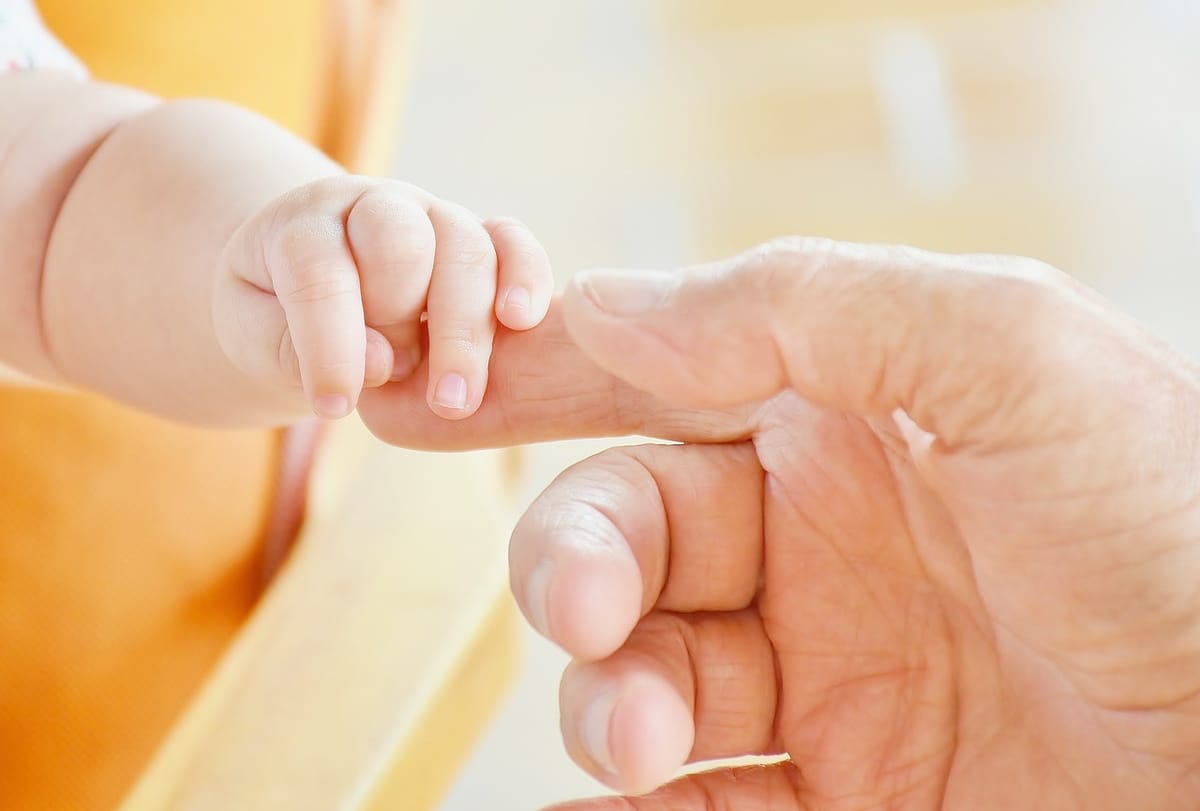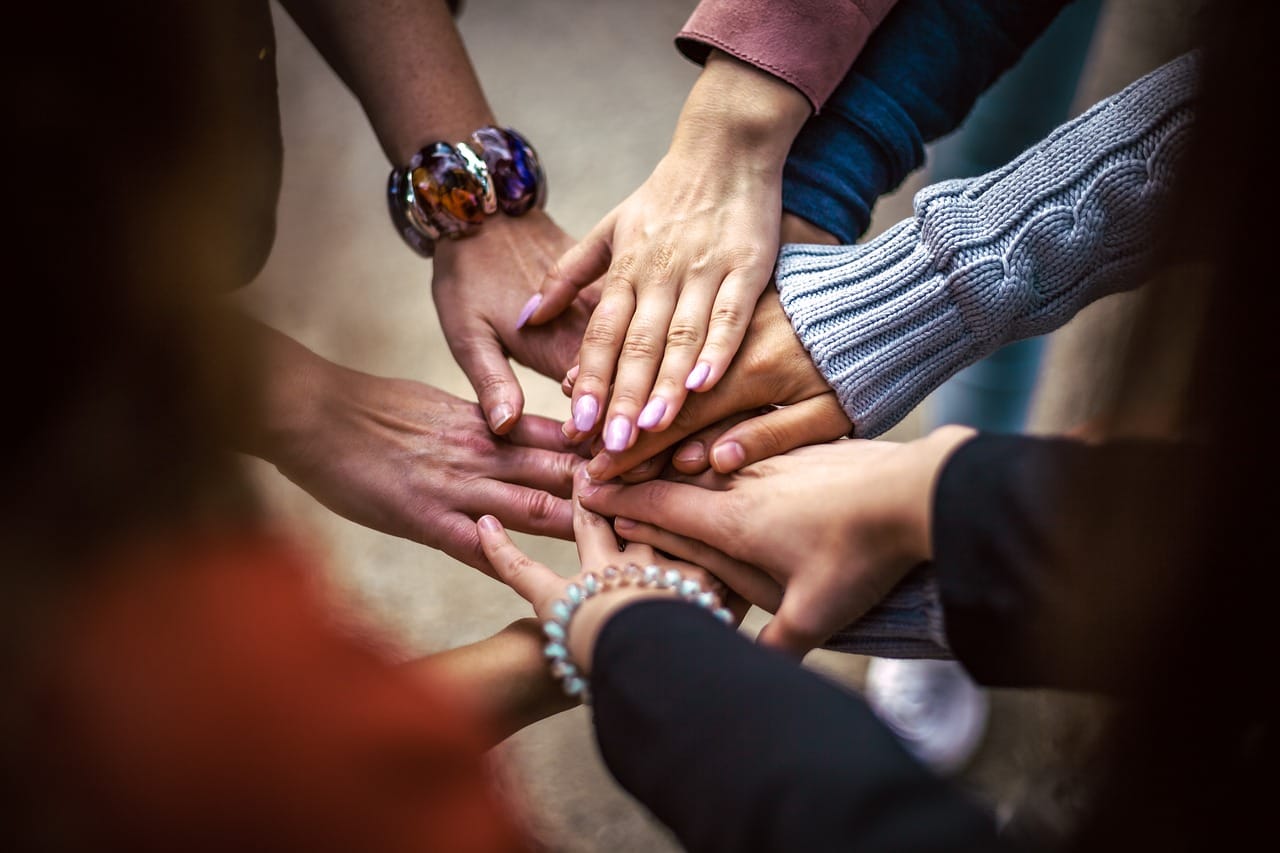Exploring Love Beyond Romantic Relationships: Friends, Family, and Self
Explore the diverse dimensions of love beyond romance in this insightful article. Learn how friendships, family bonds, and self-love contribute to emotional well-being, fostering resilience and fulfillment in life

Introduction: The Different Facets of Love
Love is a complex and multifaceted emotion that extends far beyond the realm of romantic relationships. While romantic love often takes center stage in our society, it's essential to recognize and appreciate the many other forms of love that enrich our lives. Friendships, family bonds, and self-love all play crucial roles in our emotional well-being, contributing to our overall happiness and fulfillment. In this article, I will delve into the diverse dimensions of love, exploring the significance of platonic connections, the power of family bonds, and the importance of self-love. By understanding and nurturing these different facets of love, we can cultivate richer, more meaningful relationships and lead more fulfilling lives.
Understanding Platonic Love: Friendships and Non-Romantic Connections

Platonic love, often associated with friendships and non-romantic connections, plays a fundamental role in our lives. Unlike romantic love, which is characterized by passion and intimacy, platonic love is based on companionship, mutual respect, and shared interests. Friendships form the bedrock of our social support network, providing us with companions who share our joys and sorrows, offer valuable perspectives, and contribute to our personal growth. These non-romantic connections are built on trust, empathy, and understanding, creating a sense of belonging and camaraderie that enriches our lives in profound ways.
The Dynamics of Platonic Love
The dynamics of platonic love are unique, encompassing a wide spectrum of relationships that span from casual acquaintances to lifelong best friends. While some friendships may be lighthearted and recreational, others evolve into deep, enduring bonds that withstand the tests of time and adversity. Regardless of their intensity, all forms of platonic love contribute to our emotional well-being, providing us with a sense of connection and belonging that is essential for our overall happiness.
Nurturing Platonic Connections
Nurturing and sustaining platonic connections require effort and investment, much like romantic relationships. Communication, mutual support, and shared experiences are vital components of healthy friendships, fostering trust, understanding, and emotional intimacy. By actively participating in the lives of our friends, offering encouragement, and being there in times of need, we strengthen the bonds of platonic love and create lasting, meaningful connections that enhance our lives.
The Role of Non-Romantic Connections
Non-romantic connections extend beyond friendships to encompass diverse relationships, such as mentorships, professional alliances, and community bonds. These connections enrich our lives by providing us with support, guidance, and a sense of belonging in various spheres of our existence. By acknowledging and nurturing the different forms of platonic love, we can build a robust network of non-romantic connections that contribute to our emotional and social well-being.
The Power of Family Bonds: Exploring Unconditional Love
Family bonds represent a unique and irreplaceable form of love, characterized by unconditional support, acceptance, and commitment. Our relationships with family members, whether biological or chosen, shape our early experiences of love and significantly influence our emotional development. The deep-rooted connections within families provide a sense of belonging, security, and stability that form the foundation of our emotional well-being throughout our lives.
The Significance of Family Bonds
Family bonds play a pivotal role in shaping our identities and emotional landscapes, influencing our values, beliefs, and interpersonal dynamics. The unconditional love and support we receive from family members create a nurturing environment that fosters our personal growth and resilience. Whether through biological ties or close-knit chosen families, the bonds we share with our relatives contribute to our sense of belonging and provide a support system that is integral to our emotional well-being.
Strengthening Family Bonds
Nurturing and strengthening family bonds requires open communication, empathy, and a willingness to cultivate understanding and harmony within the family unit. By actively investing in our familial relationships, we create a supportive environment where love, respect, and mutual care flourish. Through shared experiences, traditions, and meaningful interactions, we reinforce the ties that bind us to our family members, creating a strong, interconnected network of love and support.
The Role of Unconditional Love
Unconditional love within families transcends conflicts and challenges, offering a profound sense of security and acceptance that is unparalleled. This unwavering support forms the bedrock of our emotional well-being, providing us with a safe haven and a source of strength during life's trials and tribulations. By recognizing and cherishing the power of family bonds, we can cultivate enduring relationships that enrich our lives and contribute to our overall happiness.
Self-Love: An Essential Aspect of Love

Self-love, often overlooked in discussions about love, is a fundamental aspect of emotional well-being and personal fulfillment. It encompasses self-compassion, self-acceptance, and self-care, all of which are crucial for nurturing a healthy relationship with oneself. Cultivating self-love empowers us to set boundaries, prioritize our well-being, and develop a positive self-image, laying the groundwork for fulfilling relationships with others and a sense of inner contentment.
The Importance of Self-Love
Self-love is essential for maintaining emotional resilience, mental health, and overall well-being. When we practice self-compassion and self-care, we create a nurturing internal environment that supports our growth and self-actualization. Through self-love, we learn to acknowledge our worth, embrace our imperfections, and cultivate a positive relationship with ourselves, laying the groundwork for healthy, fulfilling connections with others.
Cultivating Self-Love
Cultivating self-love involves engaging in practices that prioritize our physical, emotional, and mental well-being. This may include setting boundaries, engaging in self-care activities, seeking personal growth opportunities, and developing a supportive inner dialogue. By prioritizing self-love, we fortify our emotional resilience, enhance our self-esteem, and create a solid foundation for building and sustaining meaningful relationships with others.
The Impact of Self-Love on Relationships
Self-love profoundly influences our interactions with others, shaping the quality of our relationships and the boundaries we establish. When we prioritize self-love, we are better equipped to communicate our needs, set healthy boundaries, and engage in relationships that are nourishing and balanced. By fostering a positive relationship with ourselves, we create a framework for engaging in reciprocal, fulfilling connections that enrich our lives.
Balancing Love: Friendships, Family, and Self
Balancing the different facets of love—friendships, family bonds, and self-love—is essential for maintaining emotional equilibrium and overall well-being. Each dimension of love contributes to our emotional landscape in unique ways, and finding harmony among these relationships is crucial for cultivating a fulfilling and balanced life.
The Interplay of Love Dimensions
The interplay of friendships, family bonds, and self-love creates a complex and interconnected emotional tapestry that shapes our experiences and well-being. Balancing these dimensions involves recognizing their individual significance while integrating them into a cohesive framework that supports our emotional needs and personal growth.
Prioritizing Emotional Well-Being
By prioritizing emotional well-being and self-awareness, we can navigate the complexities of love and relationships with greater clarity and intention. Understanding the roles of friendships, family bonds, and self-love enables us to make conscious choices that enhance our overall happiness and fulfillment, creating a harmonious equilibrium that enriches our lives.
Nurturing Interconnected Relationships
Nurturing interconnected relationships involves acknowledging the reciprocal influence of friendships, family bonds, and self-love on our emotional well-being. By fostering these connections with mindfulness and intention, we create a supportive network that sustains and nourishes us, contributing to our overall sense of fulfillment and happiness.
Case Studies: Successful Stories of Non-Romantic Love
Real-life case studies offer valuable insights into the enduring power of non-romantic love, showcasing the profound impact of friendships, family bonds, and self-love on individuals' lives. These stories exemplify the transformative nature of love beyond romantic relationships, highlighting the resilience, support, and fulfillment that these connections bring to our lives.
Friendship in Adversity
Case studies of enduring friendships in the face of adversity illustrate the unwavering support and companionship that non-romantic connections provide. From childhood friends who navigate life's challenges together to colleagues who forge lasting bonds, these stories underscore the significance of platonic love in fostering resilience and emotional well-being.
Family Bonds and Resilience
Stories of family bonds overcoming hardships and trials demonstrate the strength and resilience that unconditional love within families provides. Whether through stories of chosen families creating supportive networks or biological relatives overcoming obstacles together, these case studies showcase the enduring power of familial connections in shaping individuals' emotional landscapes.
The Transformative Power of Self-Love
Case studies of individuals who embrace self-love and prioritize their well-being offer inspiring narratives of personal growth and fulfillment. From individuals who embark on a journey of self-discovery to those who overcome self-doubt and cultivate self-compassion, these stories exemplify the transformative impact of self-love on emotional well-being and relationships with others.
Conclusion: Love Beyond Romantic Relationships
In conclusion, exploring love beyond romantic relationships reveals the rich tapestry of emotions and connections that shape our lives. Friendships, family bonds, and self-love all play integral roles in our emotional well-being, contributing to our overall happiness and fulfillment. By nurturing these different facets of love, we create a supportive network of connections that sustain and enrich us, fostering resilience, emotional well-being, and personal growth. Embracing the diverse dimensions of love enables us to lead more fulfilling lives, where meaningful relationships and emotional equilibrium form the cornerstone of our well-being.
CTA: If you found this article insightful, I encourage you to reflect on the diverse dimensions of love in your own life and consider how you can nurture and celebrate friendships, family bonds, and self-love. Embracing these different facets of love can lead to a more fulfilling and balanced emotional landscape, enriching your relationships and overall well-being.



